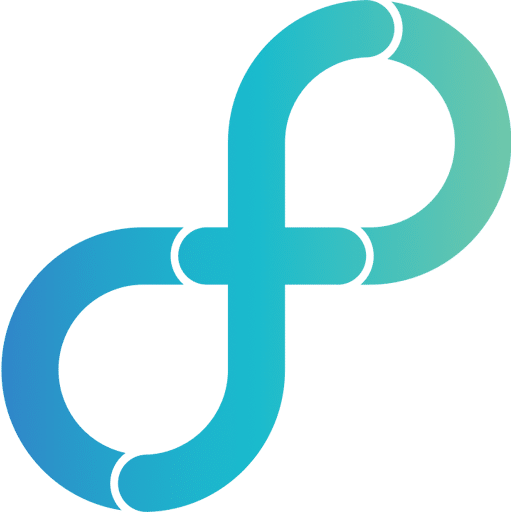While many organizations are finding it difficult to fill in-demand skills gaps, the ongoing labor shortage is hopefully inspiring business and talent leaders to widen the search to meet their talent needs — and that includes hiring neurodiverse people with the help of AI.
In the United States alone, thousands of talented neurodiverse workers are looking for the right roles. Approximately 15 to 20 percent of the population is neurodiverse and includes several conditions like autism, ADHD, and dyslexia, among others.
Historically, the problem for these workers is that employers have tended to look at their neurodivergence before their skills. As a result, neurodivergent talent is underrepresented in the workforce.
According to data from the Center for Neurodiversity and Employment Innovation at the University of Connecticut, “Unemployment for neurodivergent adults runs at least as high as 30-40 percent, which is three times the rate for people with disability, and eight times the rate for people without disability.
In the United States alone, it is estimated that 85 percent of people on the autism spectrum are unemployed, compared to 4.2 percent of the general population, according to an article on Deloitte Insights.
The key to reaching these potential candidates is surfacing their skills and connecting them with available roles. As April is World Autism Month, here is why hiring neurodiverse talent is important for every organization and some tips on how to do it better.

RELATED CONTENT: Read our latest report on why DEI initiatives produce better business outcomes.
Neurodiverse workers benefit your workforce
Neurodiverse people bring new perspectives as they see and experience the world from different angles. Organizations should see that as a plus.
“One big benefit of an inclusive work culture is that it fosters diversity of thought, different approaches to work, innovation, and creativity,” the Deloitte article continues.
“Research suggests that teams with neurodivergent professionals in some roles can be 30 percent more productive than those without them. Inclusion and integration of neurodivergent professionals can also boost team morale.”
When it comes to engaging neurodiverse talent, pairing the right person with the right role is essential. Many HR teams may not realize that their hiring processes might discriminate against neurodiverse talent. Several of the most basic elements — job descriptions, application tasks, and interviews — may be setting neurodiverse people up for failure.
“An autistic professional is up to 140 percent more productive than an average employee when properly matched to a job that fits their skills,” states this Harvard Business Review article. “Yet discrimination against neurodivergent people continues. That’s because most of the ‘common’ workplace practices at the workplace are established for neurotypicality.”
To find and hire skilled neurodiverse talent, organizations must re-evaluate their talent process to ensure that neurodiverse people feel welcome to apply and have the same chance of being hired as neurotypical people. Several factors, like providing interview questions in advance and asking for work samples, can contribute to removing or reducing barriers for neurodiverse people so they can apply and interview for jobs.
Yet another key to hiring and integrating neurodiverse talent is using a skills-based approach. Looking at skills first can inform several aspects of the talent acquisition process and transform it to be more inclusive and support qualified candidates, whether neurodiverse or neurotypical. Hiring managers who establish skills expectations upfront for neurodiverse people help set them up for success.
By taking a skills-first perspective, HR leaders can mitigate biases that lead them to overlook people with the skills they need. Focusing on skills gives neurodiverse individuals the same opportunities as neurotypical people. It also creates wider talent pools.
AI-powered talent intelligence is a highly effective and efficient way to make this happen by widening those talent searches and inviting more neurodiverse people into the pipeline.

RELATED CONTENT: Listen to our podcast on improving DEI through skills-based decisions.
4 ways AI can help HR reach and communicate with neurodiverse talent
AI enables HR to create more inclusive job descriptions: Because of their literal interpretation of the world, neurodiverse people often struggle with job descriptions. The typical job description is full of jargon that makes it confusing for some candidates to decipher the real skills expectations of the role. As a result, they often feel too intimidated to apply for a position.
AI-powered technology can help talent acquisition teams create job descriptions that are literal and clear. This eliminates any implicit or explicit biases that job descriptions may harbor against neurodiverse candidates.
Technology helps simplify the application process: An unclear or inaccessible application process is another hurdle that often prevents neurodiverse talent from applying for a job. Multiple websites and paper/online hybrid application processes can discourage some to the point that they never complete an application, keeping them out of the workforce.
AI-powered talent intelligence can help HR professionals reverse this trend by creating personalized candidate experiences that seamlessly guide people through the application process. By automating many of the steps, technology helps candidates apply more quickly and eliminate unnecessary steps like the dreaded cover letter.
For instance, candidates can load their information to a career site that surfaces recommended jobs for them so they can apply in a few clicks. By streamlining and simplifying processes, you invite more neurodivergent talent in.
AI matches candidates to roles based on skills: Skills matching is a critical function that is particularly useful for attracting and acquiring neurodiverse talent. “It is no secret that people tend to be most successful when the jobs they hold are well-matched to their skill set, so it should be no surprise that the same holds true for neurodivergent individuals,” said Jill Houghton, President and CEO of non-profit Disability:IN, in an article on Bank of America.
Through AI-backed technology, hiring teams can better match people with positions that are well-suited to their skill sets. That includes looking at skills adjacencies that may align with prospective roles. AI-powered talent intelligence platforms can also assess potential for future success to better match candidates with jobs.
AI can help simplify the interview process: Interviews can be especially challenging for neurodiverse people who may feel uncomfortable in on-demand, high-pressure situations as they might need more time to process questions and formulate answers.
“A neurodivergent individual may pause because they are thinking of the answer,” said Anthony Pacilio, VP of neurodiverse solutions at technology solutions firm CAI, in this TechTarget article. “And we [the interviewers] believe that ‘you should know the answer and should spit it right out.’ A [neurodivergent individual] may have a processing delay.”
That delay may lead the interviewer to think that person isn’t a good fit. HR teams need awareness training and to consider alternatives for traditional in-person interviews. For example, they could conduct interviews over the phone or via email or a messaging platform to reduce stress. Another option is to provide opportunities for applicants to demonstrate their skills in hands-on exercises rather than describe them in conversation.
Organizations can also break up the interview process over a few days to accommodate neurodiverse individuals. Microsoft, for example, has a four-day interview process for neurodiverse candidates. “We wanted to create a different front door for these workers and thought that if we changed the interview process and let job seekers come as they are and show us their strengths it would be better for everyone,” said Neil Barnett, Director of Inclusive Hiring and Accessibility at Microsoft, in this CNBC article.
With these hiring strategies in mind, sourcing and interviewing neurodiverse candidates can help build any organization’s talent pool. And with AI-powered talent intelligence, HR leaders can be more confident that their hiring process is focused on a person’s skills and capabilities while creating the best hiring process possible, so neurodivergent people’s skills and abilities can shine.
Learn more about how our AI-powered Talent Intelligence can help create a more diverse workforce.










